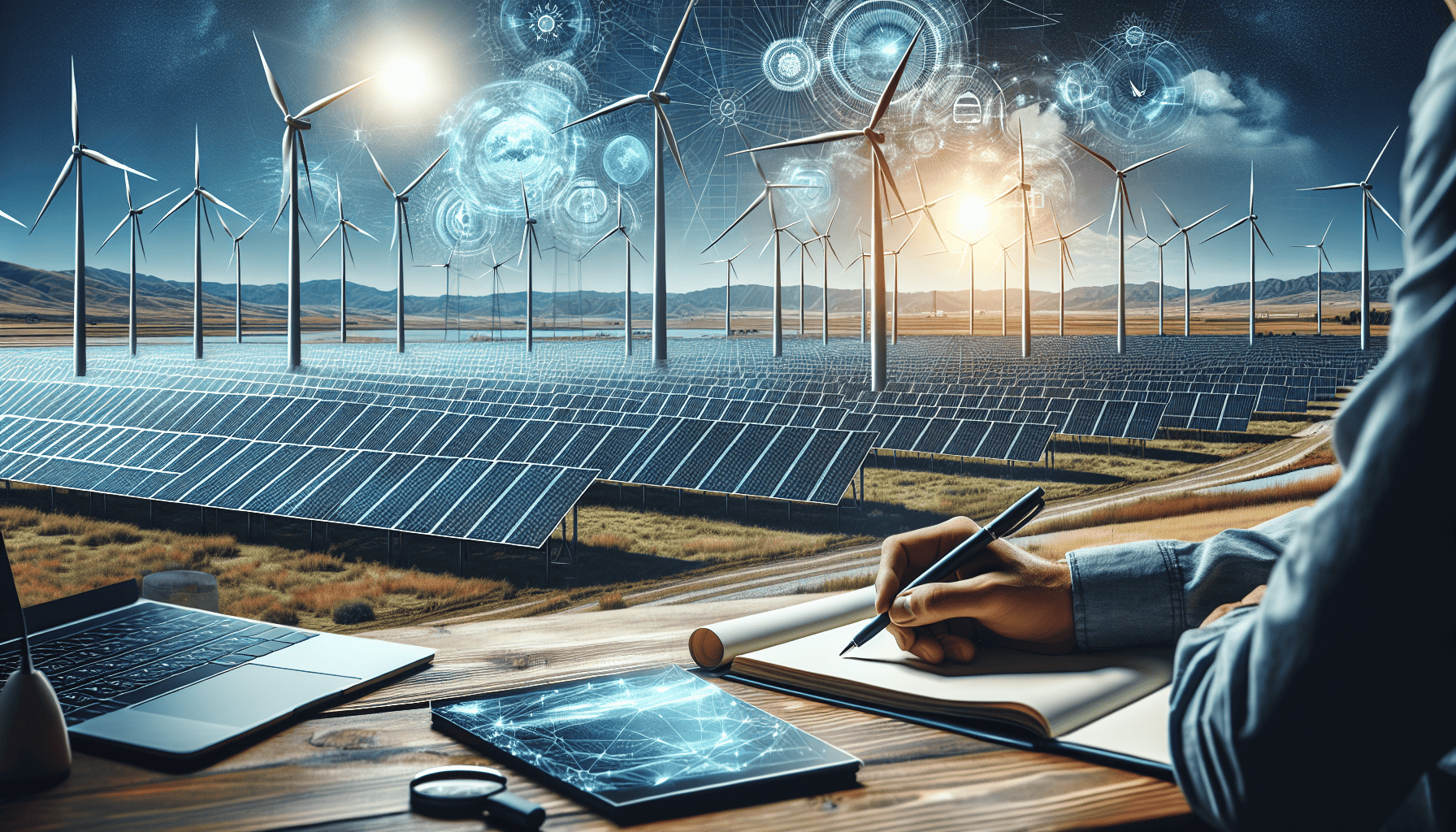In the face of escalating climate change and depleting fossil fuel reserves, the global energy landscape is undergoing a seismic shift towards sustainability. The quest for cleaner, more efficient energy sources is not just an environmental imperative; it's becoming an economic and societal necessity. As we step into a future powered by sustainable energy, let's explore the latest trends, cutting-edge innovations, and the science behind renewable resources that are set to revolutionize our world.
The Rise of Renewable Energy
Renewable energy, derived from natural processes that are continuously replenished, has surged to the forefront of technological advancements. Solar, wind, hydro, geothermal, and biomass are the primary sources of renewable energy, each with unique attributes and potential impact on the energy matrix.
Solar Power: Harnessing the Sun
Solar energy is arguably the vanguard of the renewable revolution. Technological improvements in photovoltaic cells, solar thermal systems, and concentrated solar power plants have significantly boosted efficiency and reduced costs. Innovations such as perovskite solar cells and bifacial panels are particularly promising. Perovskite cells offer superior energy conversion efficiency and lower production costs, while bifacial panels capture sunlight from both sides, enhancing overall energy output.
Wind Energy: Capturing Nature's Force
Wind power is another cornerstone of sustainable energy. Onshore and offshore wind farms are expanding, leveraging advancements in turbine design, materials, and aerodynamics. The emergence of floating wind turbines, capable of harnessing wind in deeper waters, is set to dramatically increase the potential for wind energy. Additionally, integration with artificial intelligence (AI) and machine learning is optimizing energy prediction, collection, and grid distribution, making wind energy more reliable and efficient.
Hydropower: Flowing Towards Sustainability
Hydropower remains one of the oldest and most reliable forms of renewable energy. Recent innovations include small modular hydropower systems and pumped-storage hydropower, which can store energy for later use. These advancements are particularly relevant in regions with suitable water resources, enabling more flexible and responsive energy grids.
Geothermal Energy: Tapping Into Earth’s Heat
Geothermal energy harnesses heat from beneath the Earth's surface. The development of enhanced geothermal systems (EGS) is a game-changer, making it possible to exploit geothermal resources in regions without natural hydrothermal activity. EGS involves injecting water into hot dry rocks deep underground to create steam, which then drives turbines to generate electricity. This technology could significantly expand the geographical availability of geothermal energy.
Biomass: From Waste to Energy
Biomass energy, derived from organic materials, contributes to the sustainable energy portfolio by utilizing agricultural residues, forestry by-products, and urban waste. Advances in bioenergy technologies, such as anaerobic digestion, gasification, and bio-refinery processes, enhance the efficiency and economic viability of converting biomass into biofuels, biogas, and bioelectricity.
The Science Behind Renewable Resources
Understanding the science behind these renewable resources highlights their potential and the challenges they face. Solar and wind power, though abundant and inexhaustible, are intermittent by nature. This intermittency necessitates advancements in energy storage technologies and smart grid systems to ensure a consistent power supply.
Energy Storage Solutions
The development of high-capacity, durable energy storage systems is crucial for stabilizing renewable energy supply. Battery technologies, particularly lithium-ion batteries, have made significant strides, but emerging technologies like solid-state batteries, flow batteries, and even gravity-based storage systems offer promising alternatives. These innovations could provide longer life cycles, higher power capacity, and greater environmental safety.
Smart Grids and IoT Integration
Smart grids integrate advanced information and communication technologies to manage energy production and distribution more effectively. The Internet of Things (IoT) plays a pivotal role in this transition, enabling real-time monitoring, predictive maintenance, and efficient energy management. By incorporating AI and machine learning, smart grids can optimize energy flow, reduce losses, and adapt to changing demand patterns.
The Future Impact of Sustainable Energy
The transition to sustainable energy is poised to have far-reaching implications for the global economy, environment, and society. Reducing reliance on fossil fuels will decrease greenhouse gas emissions, mitigate climate change, and improve air quality. Moreover, the sustainable energy sector is expected to generate millions of jobs, drive technological innovation, and enhance energy security.
Economic and Social Benefits
Investing in renewable energy infrastructure not only supports environmental goals but also stimulates economic growth. The creation of green jobs in manufacturing, installation, maintenance, and R&D fosters a more resilient and diversified economy. Additionally, decentralized renewable energy systems can enhance energy access in remote and underserved areas, promoting social equity and improving quality of life.
Environmental Impact
The environmental benefits of sustainable energy are profound. By reducing carbon emissions and minimizing pollution, renewable energy sources contribute to healthier ecosystems and communities. Innovations in sustainable energy technology also promote conservation of natural resources, reduce waste, and support biodiversity.
In conclusion, the shift towards sustainable energy represents the next big leap for humanity. While challenges remain, the relentless pace of innovation and growing global commitment to sustainability offer a hopeful trajectory. By embracing and advancing renewable energy technologies, we can pave the way toward a cleaner, greener, and more prosperous future.
